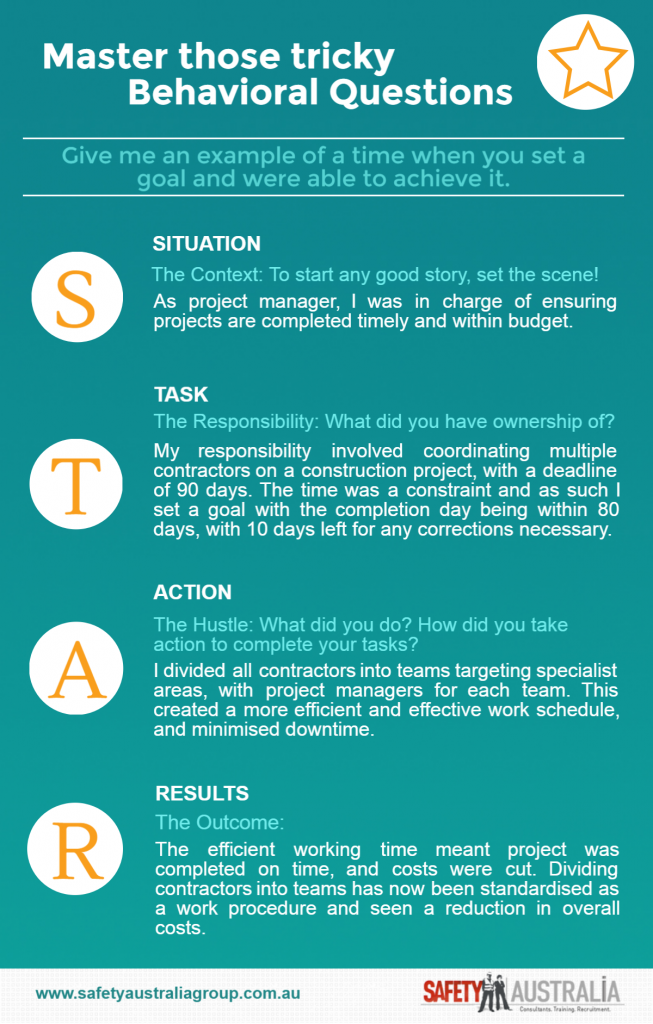
Interviewing can be nerve-racking, even for a seasoned professional. The main point of the interview process is to provide hiring managers with the opportunity to see if you have the required skills and competencies for the role.
Most interviews will encompass an aspect of behavioural questioning for example “Can you tell me about a time you encountered a complex hazard. What controls did you implement and what was the outcome?”
While this question can seem either irrelevant to the role or a little too specific, the reasoning behind such behavioural questions is that past behaviours are the best predictor of future behaviour.
When answering behavioural questions ensure you have relevant practical examples ready to draw upon. Keep in mind the key competencies of the role and think about a situation you have experienced that you can use as an example. Areas to focus on could include the ability to influence, conflict resolution, teamwork, time management, problem solving, risk identification and mitigation, decision making and leadership and initiative.
Because answering behavioural questions can be like telling a story the best way to tackle the answer is to follow this simple format:
- Situation. What context did your example take place in?
- Task. What is it you were doing or asked to do?
- Action. What steps did you take?
- Results. What was the outcome of your actions?
By preparing yourself with a range of examples you can easily adapt these stories to answer quite a few different behavioural questions. Just remember not to use negative examples or examples that do not have positive outcomes as you want to leave the interviewer with the impression that you are a STAR candidate.

